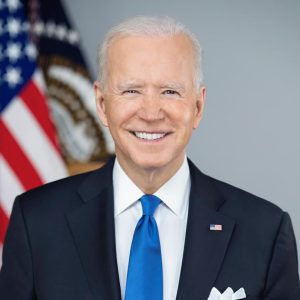The anti-Covid drug by the US pharma firm Pizer will soon be launched in India by Biophore India's subsidiary Zenara Pharma.

Paxlovid is an oral antiviral pill for patients detected with Covid-19. (Creative common)
US President Joe Biden has tested positive for Covid-19 again, only four days after recovering from the disease. Doctors, scientists and researchers believe it could be a case of “Paxlovid rebound”.

Joe Biden was isolated after a rebound case of COVID-19. (POTUS/Facebook)
Biden on Sunday announced his medical condition on Twitter: “Folks, today I tested positive for COVID again. This happens with a small minority of folks. I’ve got no symptoms but I am going to isolate for the safety of everyone around me. I’m still at work, and will be back on the road soon. (Sic)”
Folks, today I tested positive for COVID again.
This happens with a small minority of folks.
I’ve got no symptoms but I am going to isolate for the safety of everyone around me.
I’m still at work, and will be back on the road soon.
— President Biden (@POTUS) July 30, 2022
The US Center for Disease Control and Prevention (CDC) has issued a health alert for “Covid-19 rebound”, which means a person who has taken the antiviral drug Paxlovid, recovers — but tests positive again after two to eight days of recovery.
The health alert from CDC stated that a brief return of symptoms may be part of the natural history of SARS-CoV-2 — the virus that causes COVID-19 — infection in some persons, independent of treatment with Paxlovid and regardless of vaccination status.
It can be noted that Pfizer, the manufacturer, itself had acknowledged that a “Covid-19 rebound” can happen.
Pfizer in its application for emergency use authorisation had stated that its clinical trials found that at least 2 percent of 2,246 patients on the drug and 1.5 percent of patients on placebo had recovered from Covid-19 and were tested positive after a few days.
What happens
CDC’s health alert says that there is limited information on the clinical presentations when “rebound” happens.
The CDC says, “Persons treated with Paxlovid and who have experienced COVID-19 rebound have had mild illness and there are no reports of severe health issues.”
President Biden’s Chief Medical Advisor Anthony Fauci was suffering from Covid-19 in the month of June. He was also prescribed Paxlovid. Fauci was tested Covid-19 positive for the second time within a few days of recovery. However, there were no major symptoms noted or additional treatment given to him.
There is currently no evidence that additional treatment is needed with Paxlovid in cases of suspected COVID-19 rebound.
A new study says that the “rebound” of the virus in some cases can be contagious.
Hyderabad-based Zenara Pharma, a subsidiary of Biophore India, has received emergency-use authorisation from the Central Drugs Standard Control Organisation (CDSCO) to manufacture this drug in India and sell it under the brand name Paxzen.
In a statement issued to news houses last week by Zenara Pharma, CEO Srinivas Arutla said that they expect to launch Paxzen in the coming few weeks and are in talks with multiple institutions and hospitals in India to ensure that the product is readily available for patients in need.
The Indian Medical Association Covid-19 task force’s co-chairman Dr Rajeev Jayadevan told South First that “Paxlovid rebound” is a problem that came to the world’s attention after Dr Fauci and President Biden experienced suffering with “Covid-19 rebound”.
Jayadevan said that it is yet not known why it occurs.
“Most likely mechanism could be is that after the medicine is stopped, the paused virus manufacturing machinery in the cell resumes its action and thus producing viruses after a period of suppression. The clinical implications of rebound are unknown,” Jayadevan added.

Jul 26, 2024

Jul 26, 2024

Jul 26, 2024

Jul 26, 2024

Jul 26, 2024

Jul 26, 2024